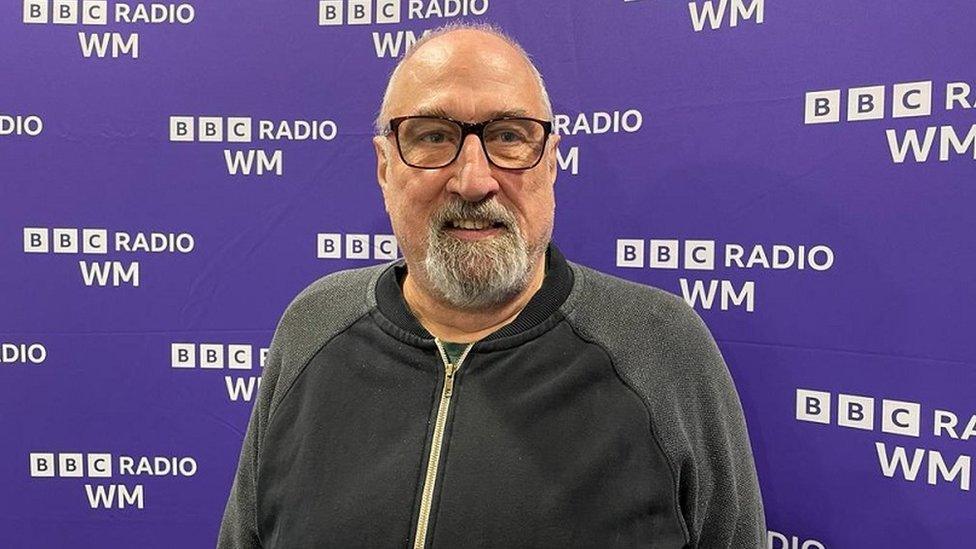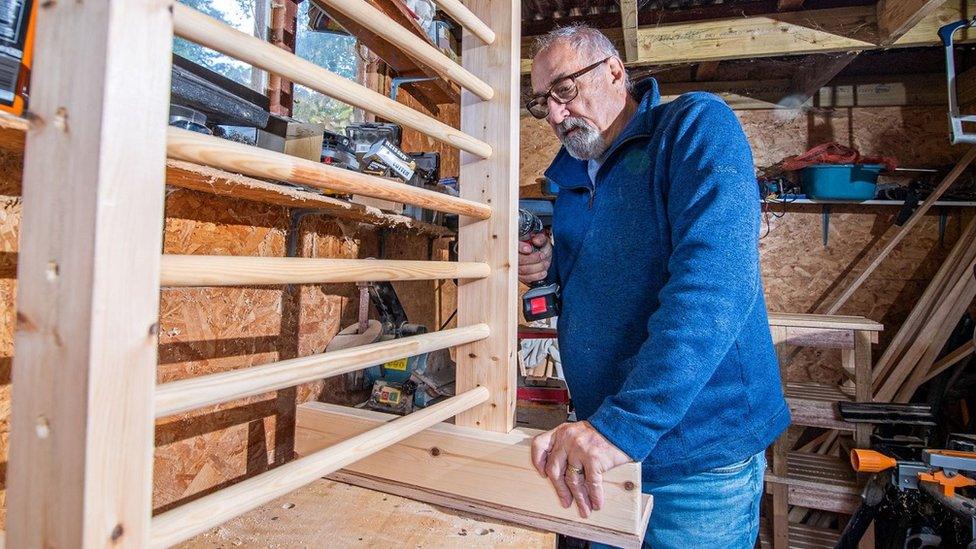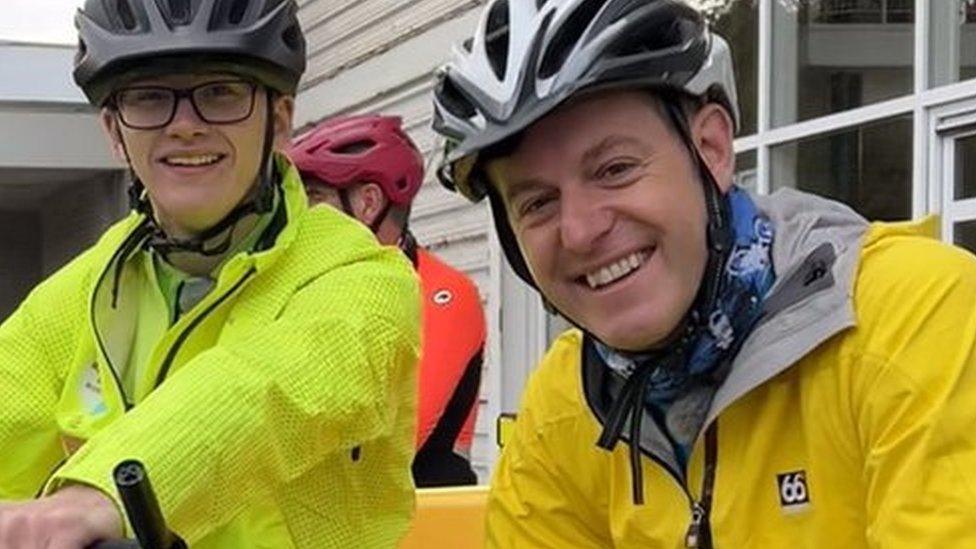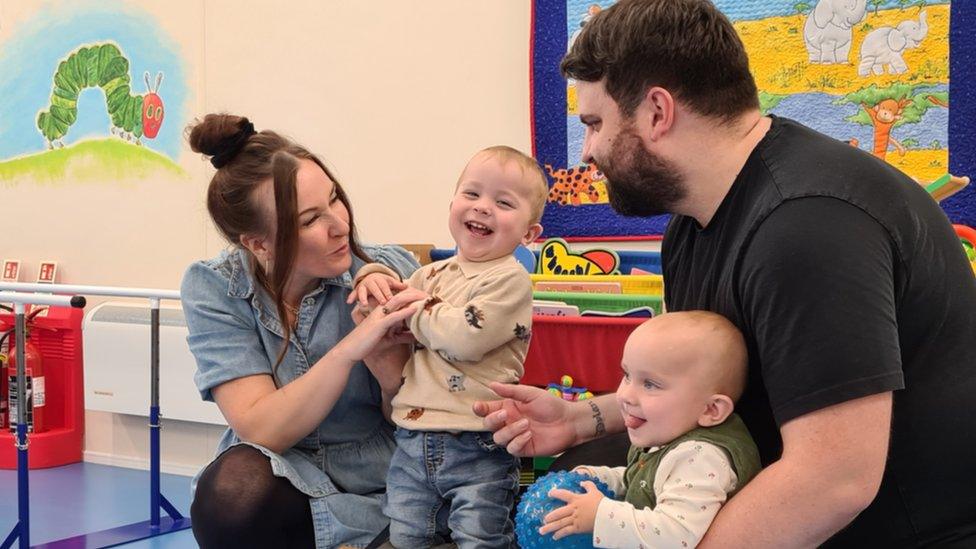Wolverhampton military veteran making therapy equipment
- Published

Mark Dickinson said his granddaughter's cerebral palsy therapy inspired him to make equipment for disabled children
An army veteran set up a not-for-profit firm to make therapy equipment for disabled children after he was inspired by his granddaughter to start it.
Mark Dickinson, from Wolverhampton, set up KatNat in 2020 and works out of his garden shed.
He started things off by helping his four-year-old granddaughter Nathalene, who has cerebral palsy.
"You see them smiling and it just inspires you even more to carry on," the 60-year-old said.
Nathalene was undergoing rehabilitation and strengthening treatment in Manchester when her mother told Mr Dickinson about a piece of equipment she could use to continue therapy at home.
To save on the cost, he said he would make it himself and finished it after a few months.
"Some other people saw it via my daughter Katy, asked about it and I decided to start doing them for other people," he told BBC Radio WM.

Mr Dickinson produces the equipment in his workshop
Mr Dickinson was diagnosed with post-traumatic stress disorder (PTSD) in 2015, more than 20 years after he trained soldiers in the former Yugoslavia in the early 1990s.
He said the charity work has given him a sense of focus and seeing his work making children smile was a big inspiration.
"It is incredible to consider how much these children go through, how much they struggle with and yet how positive and optimistic they remain," he said.
The firm, KatNat, was named after the first three letters in his daughter and granddaughter's names.
Donations are used to cover costs and Mr Dickinson said he gives the equipment to families for free.
"I've driven away sometimes and I am crying my eyes out after leaving them," he said.
"Back in August, I received back my first set of parallel bars; the child who had received it a year ago had developed the mobility and strength to walk without it."

Follow BBC West Midlands on Facebook, external, Twitter, external and Instagram, external. Send your story ideas to: newsonline.westmidlands@bbc.co.uk, external
Related topics
- Published15 November 2022

- Published11 November 2022

- Published24 October 2022
